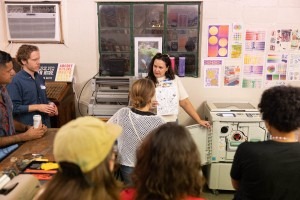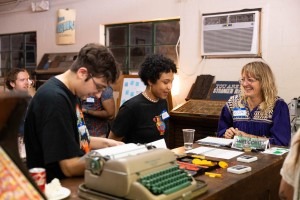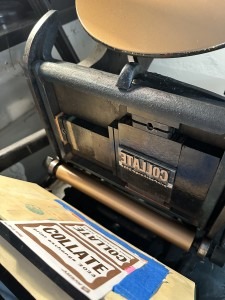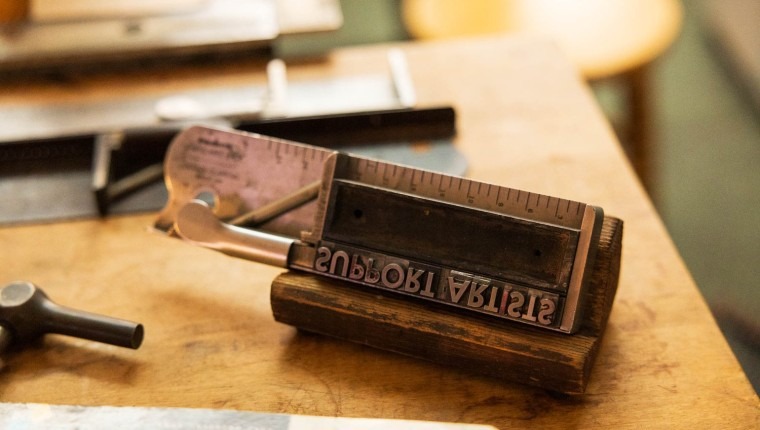Community building is an important part of my art practice as a printmaker and book artist. Finding ways to engage others in the work brings meaning to my personal work, and speaks to the collaborative nature of print.
Historically printmaking and book arts have always been a collective effort. Japanese ukiyo-e woodblock prints in the 17-1800s combined skills of a designer, an engraver, a printer, and a publisher. Newspapers involved huge teams, with each member having a specialized role. My grandfather was a typesetter for the Parkersburg Tribune, and my grandmother worked as a proofreader.
At Print St. Pete, I am the typesetter and the proofreader. While there is a part of me that delights in having full control over every part of the process, I can confirm how isolating, and sometimes extremely time consuming, it is to do everything myself. Through my work at Print St. Pete, I’m able to engage others through education -offering workshops and classes- and a monthly free meet-up group, COLLATE, for printers and zine makers in the Tampa Bay area.

Teaching people continues to be a rewarding part of my practice. Seeing their face light up after pulling their first print, witnessing the “aha” moment, is a joy that I’ll never tire of. It also relieves a bit of pressure, knowing that the knowledge and technical skills of this centuries-old art form won’t end with me. While I do warn my students of the addictive nature, more than one has gone on to purchase a press and drawers of type, exactly as I hoped.
This past Fall I started COLLATE, the free monthly meet-up for printmakers and zine makers in the Tampa Bay area. The idea came to me one weekend as I spent two full days collating, folding, and binding a zine that would have taken me a quarter of that time with more than my own two hands. When asked what brings them to the meet-up, most describe missing a sense of community, and wanting connection. In December, our group organized a print exchange, with 20 printmakers exchanging a diverse portfolio of work- everything from letterpress to linocut to potato prints.

I am grateful to have a space to offer hands-on education, and host meet-ups. I encourage my fellow artists who have studio spaces to host their own. If you don’t have a studio space, consider local coffee shops or public libraries that offer meeting spaces. Like me, you might think that nobody will come, and be pleasantly surprised.




